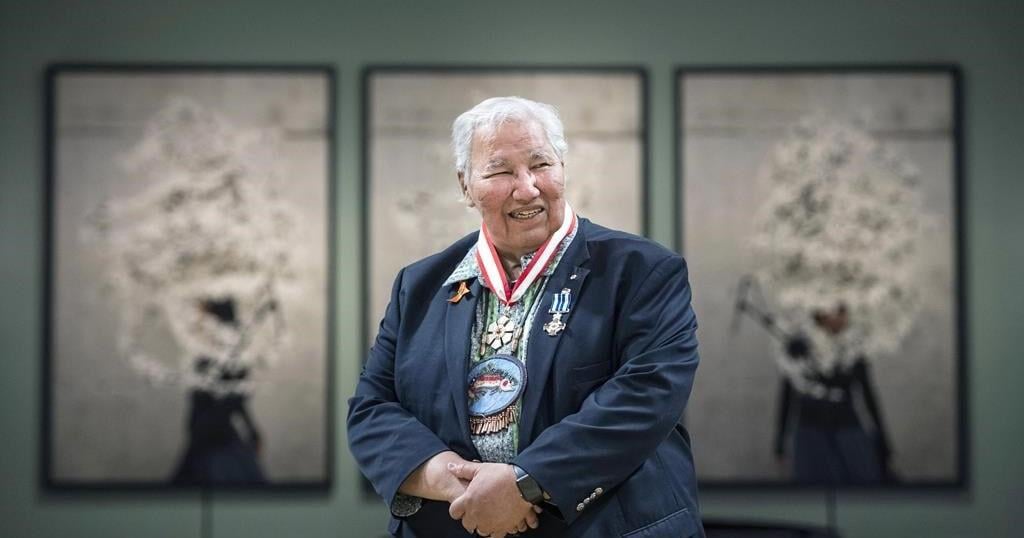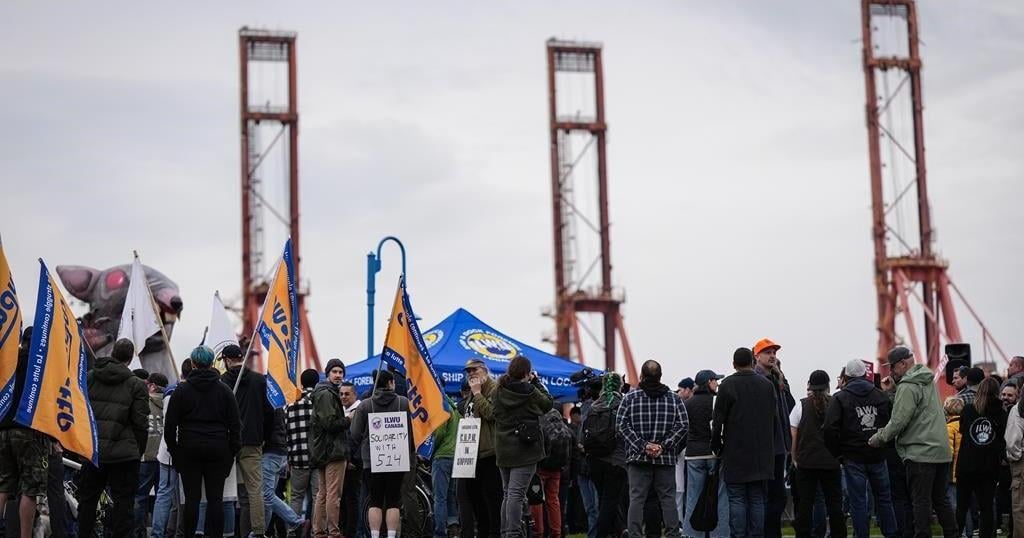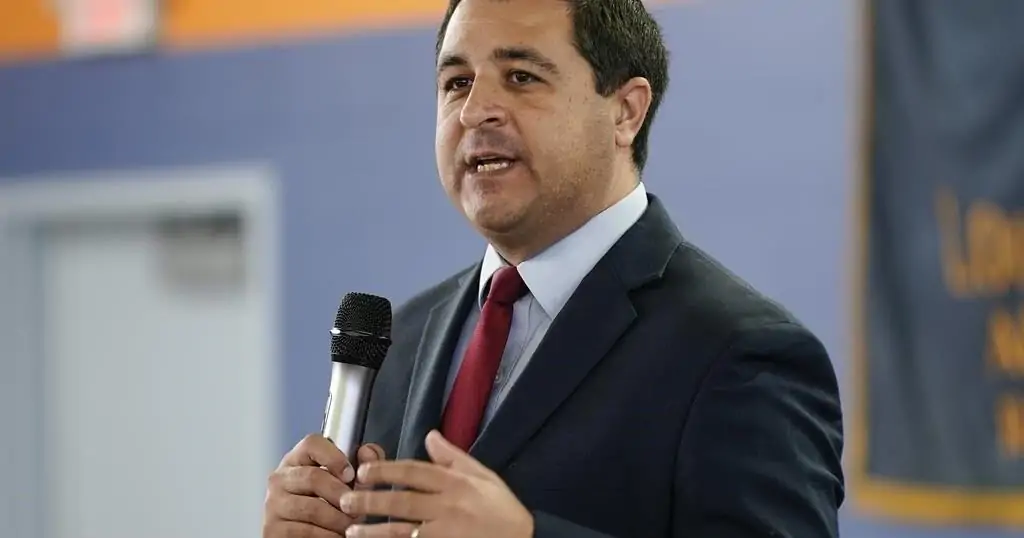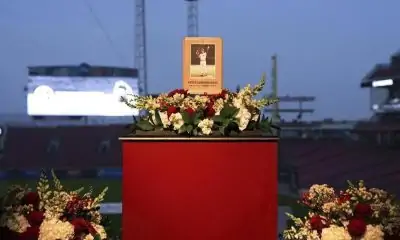WINNIPEG – Applause erupted over and over at the Canada Life Centre in Winnipeg Sunday as the son of Murray Sinclair, a former judge, senator and chair of the Truth and Reconciliation Commission into residential schools, spoke about his father.
Niigaan Sinclair said his dad “was a first” in every room he walked into.
“It was impossible to go through a mall without 17 people, two of them he’d sentenced to jail at one point, coming up to him and saying how much they appreciated him,” Niigaan Sinclair said.
Sinclair’s death Monday at the age of 73 was met with tributes from across the country, and a sacred fire was lit outside the Manitoba legislature. Indigenous leaders and politicians, including Prime Minister Justin Trudeau, attended Sunday’s service honouring Sinclair’s legacy at the home arena of the NHL’s Winnipeg Jets.
“He became to me a wise teacher, a trusted confidant, an insightful elder. And above all, a friend who challenged me to always do better,” Trudeau said.
Sinclair, he said, “changed this country for the better.”
As chair of the Truth and Reconciliation Commission, Sinclair heard testimony from thousands of residential school survivors and the commission’s final report contained 94 calls to action.
He was the first Indigenous judge in Manitoba and the second in Canada, and he served as co-chair of the Aboriginal Justice Inquiry of Manitoba to examine whether the justice system was failing Indigenous people.
Sunday’s memorial was the first national commemorative ceremony for an Indigenous person.
Gov.-Gen. Mary Simon said she became emotional when telling her own story at the Truth and Reconciliation Commission, and Sinclair comforted her with warmth and compassion.
“People felt a sense of trust and authenticity around him, that they could be who they are without judgment,” she said.
Many in the stands wore orange shirts saying “Every Child Matters.” Others wore traditional attires, including ribbons skirts and Metis sashes.
The Bentwood Box, a sacred box that travelled with the Truth and Reconciliation Commission to events throughout Canada, was on display on stage along with a portrait of Sinclair by artist Kent Monkman and the flags of Canada, Manitoba, Treaty One and the residential school survivor’s flag.
Sinclair’s obituary describes his journey as an Indigenous man born in the early 1950s. His traditional Anishinaabe name is Mazina Giizhik, or One Who Speaks of Pictures in the Sky.
“As he grew up, Mazina Giizhik experienced racism but never lost his sense of hope, duty, and responsibility,” it says.
Niigaan Sinclair said one of his father’s favourite stories involved the racism he suffered in his first week as a Manitoba’s first Indigenous judge. He was at a luncheon with a group of judges, when one of them spoke to him.
“He turned to my father and said, ‘You know, Murray, the only reason that you were appointed is we all feel bad. We all feel bad about native people,'” Niigaan Sinclair said.
“My father turned to him and said, ‘You’re only here because you’re a white guy.'”
Niigaan Sinclair said he once asked his father if it was a sense of duty that drove him to keep fighting, to endure the nightmares from listening to residential school survivors, to miss family events to fight institutions, laws and people in power who treated others with disdain.
“I said, ‘Is it because you were such a hard working guy?’ Because he was Athlete of the Year in 1968, he reminded me every single day of my life,” Niigaan Sinclair said, drawing warm laughter from the crowd.
“Was it because of a responsibility, something you picked up in the legal profession, or was it because of the bigger picture?” he continued.
“You know, what he told me? He said, just simply, ‘I was called.'”
Manitoba Premier Wab Kinew told the gathering that his father was stripped of his Indigenous name and his long hair in residential school, but that he and his wife now braid the hair of their youngest child when he goes to school.
“Though we have lost our teacher, we have not lost his teachings,” Kinew said.
This report by The Canadian Press was first published Nov. 10, 2024





















